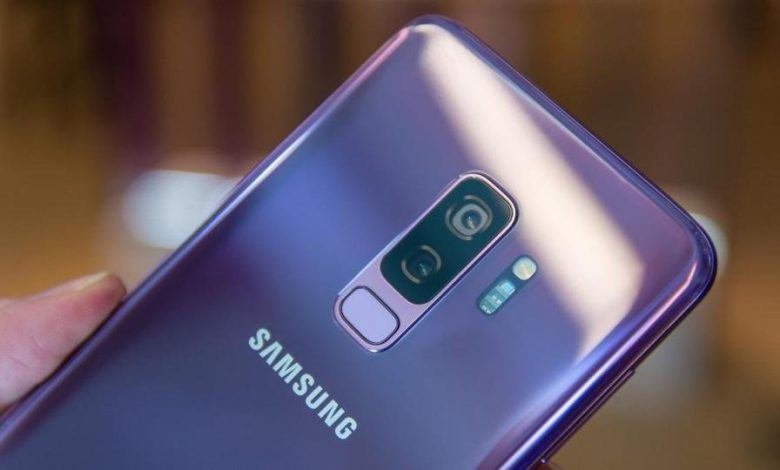Is Samsung still the number 1 choice in mobile phones?
Who hasn’t heard of Samsung? If you haven’t used any of its products, you must have known someone who has. It is one of the most recognized and famous brands in the world. The South Korean giant is an electronics company that ranks number one in the smartphone market according to different metrics. But will it survive the avalanche of multiple Chinese phone brands? Let’s find out.
Samsung, a brief history:
The Samsung electronics company was set up in 1969, but Samsung was in existence even before that. It came into being in 1938 as a trading company. In its initial years, it traded everything from dried fish to detergents and many things in between. Its electronics company began developing products in technical collaboration with a Japanese company, Sanyo.
The years of development:
Samsung experienced success with its electronics in the 1970s and the 1980s. The world was undergoing an electronics revolution with the development of semi-conductors and similar equipment. Samsung capitalized on it, but its products were far from being high-quality and innovative. They were mostly low-class and low-tech gadgets that mostly imitated their Japanese counterparts.
1998, a watershed year in Samsung’s history:
In 1998, Samsung’s CEO decided to steer the company toward manufacturing electronic components. It changed the company’s fortunes for good. It not only made it the world’s largest producer of electronics but also paved the way for what would later become its ultimate identity: smartphone manufacturing.
The Smartphone era:
When Samsung began producing smartphones, it was up against some well-known European and American brands. Nokia, Siemens, and Motorola were ruling the roosts. It was not easy to penetrate their ranks, but on the strength of its design, quality, variety, and price, Samsung made inroads into the mobile phone market and became a respected name in the industry.
In the mid-2000s, the dominance began:
Samsung released its first smartphone, the Galaxy S, in 2009. But it had already become the second largest phone manufacturer in the world in 2007. The release of the Galaxy S solidified its position further, and the subsequent release of the S series ensured that Samsung remained at the forefront of the smartphone market.
The road to success:
Samsung never looked back after the release of its Galaxy S in 2009. Its models receive critical and commercial success simultaneously. Many of its models have been best sellers since their release. The Galaxy S4 remains the best-selling Android phone of all time. It has sold 80 million units, and it is unlikely any other phone will break its record.
The technology leader:
The company is well-known for its ability to innovate and provide cutting-edge technology in its phones. It introduced and popularized the concept of “phablets” with its Note series. A big-screened mobile phone with a pen was an experiment that could have backfired tremendously. But it paid off, and the Note series became a runaway success.
Samsung Mobiles also pioneered and continues to lead the foldable smartphone series. Its other notable technological breakthroughs include AI-powered erasure, one UI, the world’s first-ever dual pixel sensor, superlative IP rating, Samsung Knox, an enhanced AMOLED display, etc. Samsung is now a force to reckon with, continually adapting and evolving, setting trends along the way.
The success story continues:
Every year, Samsung churns out dozens of new smartphones belonging to its multiple model lines. It caters to every budget and every consumer type. If you intend to buy a Samsung smartphone, you will find one that matches your dream specs and fits your budget. That is the reason for its success, which is why it continues to find traction among its target market.
Attention to R&D:
Samsung also has a razor-sharp focus on R&D. It spends heavily on this department and understands its importance very well. Its history is a testimony of how well it has used cutting-edge innovations and is poised to use them tremendously in the future too.
Global sales and production facilities:
Last year, Samsung shipped out 300 million units of its smartphones from its multiple manufacturing units spread worldwide. Until April 2022, it held a 24% market share of the global smartphone market and will continue to post strong figures by the end of this year.
Samsung also operates factories in Vietnam, Indonesia, Brazil, India, and its hometown. Its factory in India is the largest mobile phone manufacturing facility in the world. In India, Samsung is the market leader despite stiff competition from Chinese companies. It also leads the mobile phone market in many other countries.
What does the future hold for Samsung?
There is no doubt Samsung leads the Android phone market. It is the undisputed king here. Its rivalry with Apple is well-known too. They both compete with each other fiercely for the ultimate emperor of the phone world, Android and iOS included. Apple and Samsung operate on different platforms, yet they are considered arch rivals and try to outdo each other in terms of quality, performance, and technology.
The Chinese factor: The arrival of cheap Chinese smartphones has affected the market dynamics. These phones offer a litany of features at a considerably lower price. But, still, even their combined sales have not been able to dent Samsung’s market share substantially. Huawei did pose a formidable challenge, but its tiff with the US government caused it dearly, and Samsung’s crown remained unmoved.
A new communications era:
The advent and proliferation of 5G networks, along with other emerging technologies like the internet of things, AI, and big data, are set to transform our lives. The way we communicate will also change, and in this changing scenario, the role of smartphones will also change. Some experts opine that smartphones will rest in peace, while others say they will get a new avatar.
We will see whatever the future unfolds, and we are sure that Samsung will have it planned. We are excited to see how this tech giant will adjust to the new challenges posed by technology.
Investment in new technologies:
Samsung has confirmed that it intends to invest a whopping USD203 billion in new and emerging technologies in the coming three years. It includes investments in robotics, the semiconductor industry, artificial intelligence and biopharmaceutical. The exact breakdown of the total investment is not revealed.
It has also hinted at mergers, and acquisitions, to further cement its market position and gain a competitive advantage. It has finalized a sale agreement with Qualcomm to secure a robust supply chain until 2030.
It is fully conversant of all the challenges and competition it faces and is doing all in its capacity to continue to lead the way.
From where can you buy the Samsung phones:
If you are looking to buy Samsung phones in the aftermarket, then we can suggest the name of Wise Market Australia. It is an online forum that sells new, used, and refurbished phones from all the popular brands, including Samsung. All its products are of top quality and enjoy a 13-month warranty and a 21-day money-back guarantee. You also get a free shipment and after-sale service. So, check out its website.
Conclusion:
In the end, we can say that Samsung still enjoys an unparalleled status in the Android phone market. There seems to be no immediate threat to its throne, and we will see how it positions itself in the future to meet new challenges.




